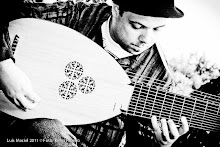 The turn of the fifteenth century to the sixteenth saw the birth of a number of important personalities in history and music history. It was in the height of Renaissance and the Western world had just been connected with India by sea, sailing around Africa as the Portuguese navigator Vasco da Gama did in 1497. It was also a time of Humanism (see "Renaissance and Melancholy" article), an era of knowledge and maritime exploration, though haunted by the persecutions of the Inquisition and the Catholic Church.
The turn of the fifteenth century to the sixteenth saw the birth of a number of important personalities in history and music history. It was in the height of Renaissance and the Western world had just been connected with India by sea, sailing around Africa as the Portuguese navigator Vasco da Gama did in 1497. It was also a time of Humanism (see "Renaissance and Melancholy" article), an era of knowledge and maritime exploration, though haunted by the persecutions of the Inquisition and the Catholic Church.In the year of 1500 is born the future Emperor Charles V, who would be master of most of Europe, the so-called Europe of the Habsburgs. He also inherits all the immensity of the Spanish colonial New World, a new continent which is discovered by the Portuguese navigator Pedro Alvares Cabral precisely in that year. Simultaneously, another Portuguese, Diogo Dias, discovers Madagascar.
In music, only in Spain are born the polyphonist Cristóbal de Morales and the vihuelists Miguel de Fuenllana, Luis de Milán, Luis de Narváez and Enríquez of Valderrábano. In the context of the newly implemented Catholic fundamentalism, these were the personalities that gave rise to the famous "Spanish Golden Age" sound, influencing future generations of composers like Tomás Luis de Victoria, Pedro de Escobar and Frei Manuel Cardoso, among others.
(Português)
A viragem do século XV para o XVI viu nascer uma série de personalidades importantes para a história e para a história da música. Estava-se em plena Renascença e o mundo ocidental acabara de ser conectado por mar com a Índia, navegando à volta de África como o fez o navegador português Vasco da Gama em 1497. Vivia-se também em pleno humanismo (ver artigo “Renascença e Melancolia”), uma era de conhecimento e exploração marítima, ainda que assombrada pelas perseguições da Inquisição e da Igreja Católica.
No ano de 1500, nasce o futuro imperador Carlos V, que seria senhor de grande parte da Europa, a chamada Europa dos Habsburgos. Herda também toda a imensidão colonial espanhola no Novo Mundo, um novo continente que é descoberto pelo navegador português Pedro Álvares Cabral precisamente nesse ano. Simultaneamente, outro português, Diogo Dias, descobre Madagascar.
Na música, só em Espanha nascem o polifonista Cristóbal de Morales e os vihuelistas Miguel de Fuenllana, Luis de Milán, Luis de Narváez e Enríquez de Valderrábano. No contexto do fundamentalismo católico recém-implantado, estas foram as personalidades que deram origem ao famoso som do “Século de Ouro Espanhol”, influenciando futuras gerações de compositores como Tomás Luis de Victória, Pedro de Escobar e Frei Manuel Cardoso, entre outros.



No comments:
Post a Comment